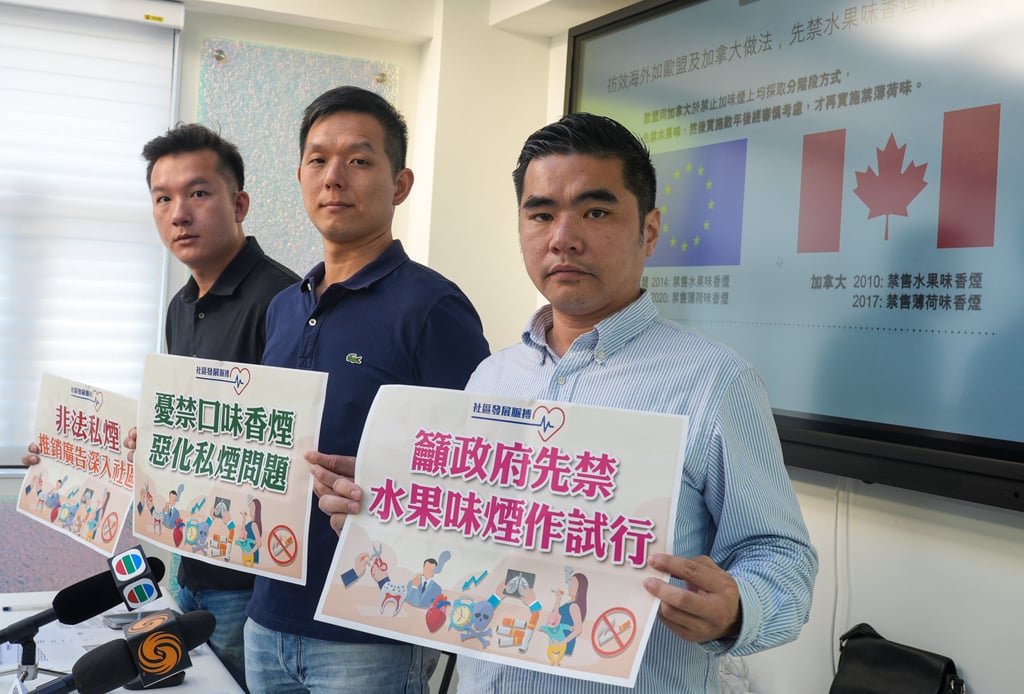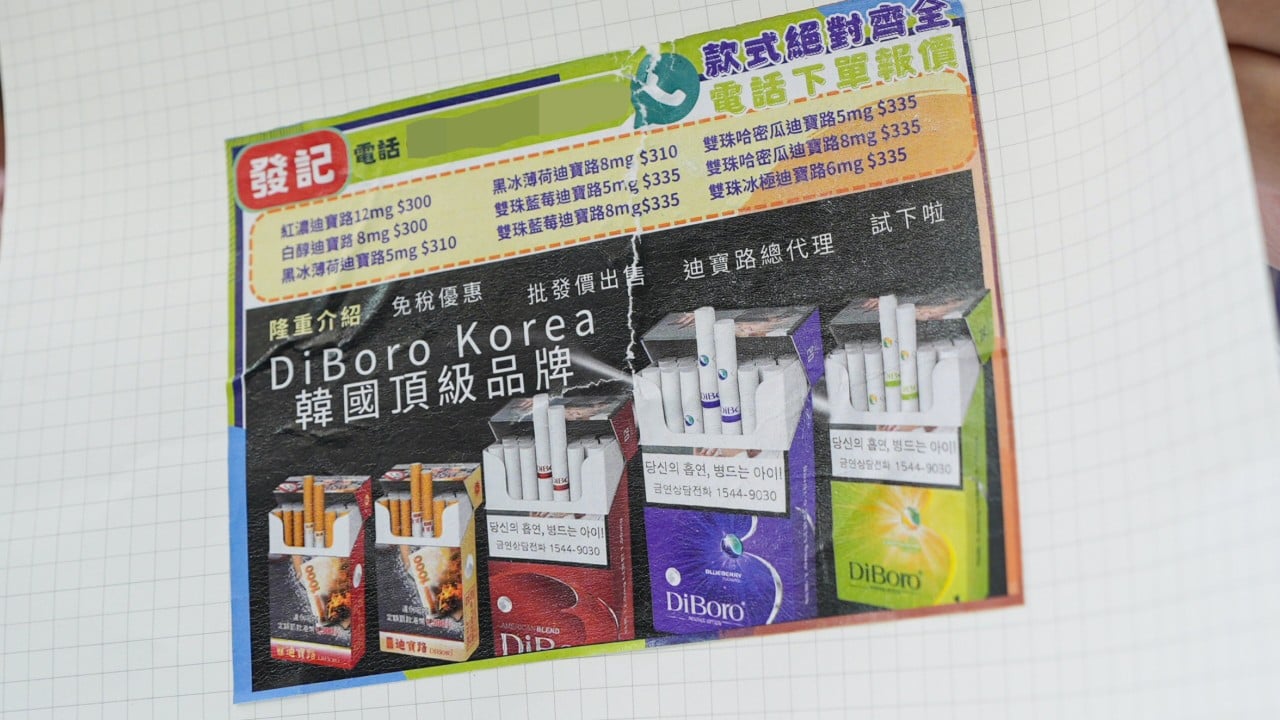Advertising stickers promoting illicit cigarettes have appeared in public spaces in several parts of Hong Kong, with three district councillors urging tougher law enforcement efforts to remove the advertisements.
Community Development Pulsation, a non-profit group promoting sustainable development in the city, said on Tuesday there had also been a rise in complaints in the past fortnight about promotional fliers for illegal cigarettes being distributed in public housing estates.
Group member Leung Ka-wai, who is also a Sha Tin district councillor, said the advertising stickers were often posted in public areas such as bus stations, garbage bins, toilets in shopping centres, and the back of the seats in buses and minibuses in Sha Tin, Tsuen Wan, North district and Tuen Mun.
“Take one sticker as an example, its design is quite pretty. There is a picture of a beautiful girl and it is very colourful,” he said, adding that there were also two “hotline numbers” for placing orders written on it.

“It states that delivery service can be provided throughout Hong Kong, Kowloon and the New Territories, with ‘free samples given’ and ‘pretty girls taking phone calls’. These words are basically a sales pitch to lure teenagers.”
Leung also said the ads promoted a bundle consisting of 10 packs of cigarettes, sold at HK$350 (US$45).
“A pack of their cigarettes is even lower than the current amount of tobacco duty. There is no reason for the seller to do business that loses money,” he said.
“In other words, the advertisement is promoting illicit cigarettes.”
The circulation of tobacco advertisements in printed publications, public spaces, in films or on the internet is illegal in Hong Kong. If convicted, offenders face a maximum fine of HK$50,000 and a further penalty of HK$1,500 for each day that the offence is perpetuated.
Smokers must pay a tobacco duty of HK$66 for a pack of 20 cigarettes, with each packet costing more than HK$90.
Authorities raised the tobacco tax by 60 HK cents and 80 HK cents per cigarette over two consecutive years from 2023.
The government last month announced a plan to pass 10 short-term measures before the end of next year to further decrease the city’s smoking rate, including a ban on flavoured cigarettes and the possession of alternative tobacco products.
The measures aim to lower the city’s smoking rate to 7.8 per cent in 2025 from the 9.1 per cent recorded last year.
Leung urged the Tobacco and Alcohol Control Office to ramp up law enforcement efforts, adding that his group would hand over information on the advertisements.
Fellow member and Sha Tin district councillor Wong Yue-hon said authorities should be “more proactive” in enforcing the law, adding that more young people might be enticed to deliver illicit cigarettes for money during the summer holidays.
“They should not simply crack down on the illicit cigarettes at source or only crack down on big cases and let the small cases go,” he said.
Wong said the promotional leaflets provided contact numbers, which could be used by the government to trace and arrest couriers involved in the illegal business.
“With fewer couriers, the sellers may find it difficult to distribute the goods, which could be an effective way to crack down on them,” he said.
Earlier this month, customs made their first raid on an illicit cigarette factory in the city, seizing HK$120 million worth of untaxed goods, processed tobacco and machinery.
Lam Yu-sing, also a member of Community Development Pulsation and a Sha Tin district councillor, said that the Tobacco and Alcohol Control Office was mainly responsible for law enforcement and officers might not consider it their remit to remove the advertisements after receiving complaints.
He added that it might take “a long time” for relevant government departments to remove the advertisements and urged for stronger collaboration between agencies.
Members of the non-profit group also said the government should impose a ban on flavoured cigarettes “in phases”, to prevent a boost in illegal cigarette sales.
Authorities should first introduce measures targeting illicit cigarettes such as imposing a duty-paid labelling system and increasing maximum penalties for illicit-cigarette-related offences before banning other tobacco products, they suggested.


